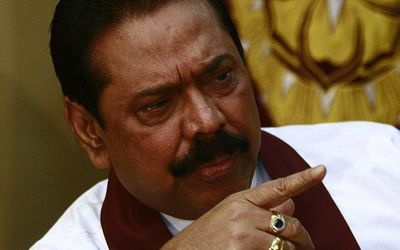
In Sri Lanka, the government of president Mahinda Rajapaska has banned the commemoration of the Tamil Tigers’ defeat that occurred on May 16th 2009. The victims’ families—members of the new Tamil party—were planning to organize widespread demonstrations in May 2014, on the occasion of the funeral ceremonies.
The Liberation Tigers of Tamil Eelam (LTTE) were crushed by the Sri Lankan army, with the support of Israeli advisers, while Israel had for years trained both camps at the same time (government and rebels). According to the UN Secretary General, the Sri Lankan army killed over 40 000 people during the last weeks of the civil war, the majority being prisoners of war who had already surrendered.
The Chief of Defence Staff and Commander of the Army, General Sarath Fonseka, accused the Minister of Defence of having given the order to execute the prisoners. He was immediately relieved of his duties, but ran in the presidential election as the main opposition candidate. After having lost, he was tried by a military court for his remarks, and sentenced to 3 years of imprisonment. He was freed in Mai 2012.
Since 2005, Sri Lanka has been presided over by Mahinda Rajapaksa (pictured), whose family controls 70% of the island’s wealth. His brother Gotabaya is the Defence Secretary, his brother Basil is the Minister of Economic Development, and his third brother Chamal is Speaker of the Parliament. His cousins Jaliya Wickramasuriya and Udayanga Weeratunga are Sri Lanka’s ambassadors to the United-Nations and Russia, respectively.
The majority of the Sri Lankan people are Buddhists, while the Tamil population is Hindu. The Prime minister, D. M. Jayaratne, is himself minister of Buddhist affairs.












Stay In Touch
Follow us on social networks
Subscribe to weekly newsletter